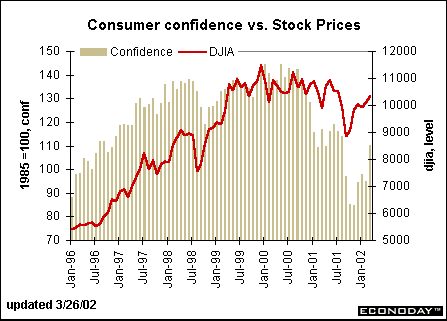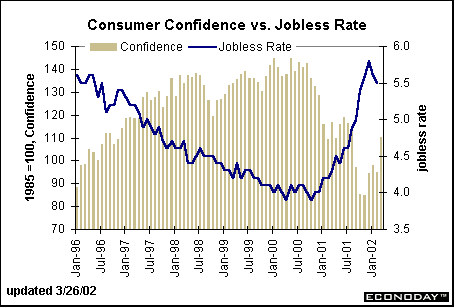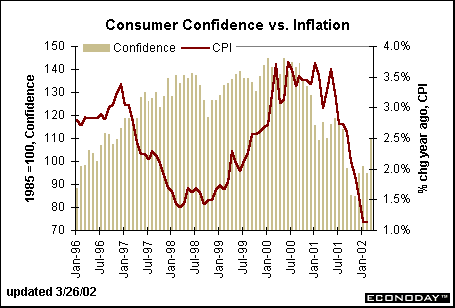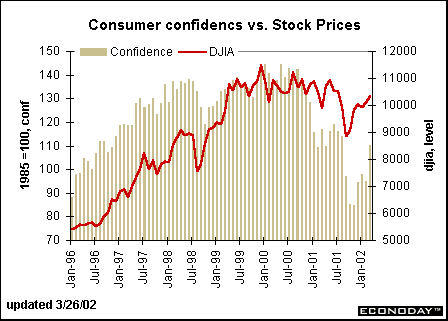A Wall Street Journal headline on Tuesday noted that the March consumer confidence report - up 15 percentage points in one month - fueled the equity market. The level was at its highest since last August, but the magnitude of the gain was the largest since March 1991! There is no wonder that equity markets were heartened by the news.

Two key factors determine confidence
Consumer sentiment is determined by two key factors: employment and inflation. The chart below depicts monthly levels of confidence versus the nation's unemployment rate. When the unemployment rate is falling, then confidence rises; when the unemployment rate is rising, confidence declines. The 2000 peak in confidence was nearly in line with the 2000 trough in the jobless rate. Consumers feel good about economic conditions when they don't have to worry about their job situation. When consumers hear reports of increased layoffs, they begin to worry about their own job security - even if the layoffs might be segregated in a particular industry. While consumer confidence did begin to turn around in December, before the drop in the unemployment rate, the largest rise in confidence took place after the jobless rate declined for two straight months and layoffs declining in their intensity.

The rate of inflation also determines the degree of optimism in the economy. If the rate of inflation is not accelerating, but in fact, slowing down, that means that consumers can buy more goods and services with their current income. Notice in the chart below that consumer confidence increased in the 1990s as the rate of inflation declined. When inflation accelerated, confidence declined. In the past year, inflation once again moderated helping to spurt consumer optimism.

While employment and inflation are the two key factors that determine consumer confidence, there is no question that movements in the stock market also affect consumers. Thus, the Wall Street Journal noted that the confidence report fueled buying on Tuesday, March 26, but this is actually a circular relationship. Consumers are likely to become more optimistic about economic conditions if the equity market continues to head higher.

Evelina M. Tainer, Chief Economist, Econoday
| 